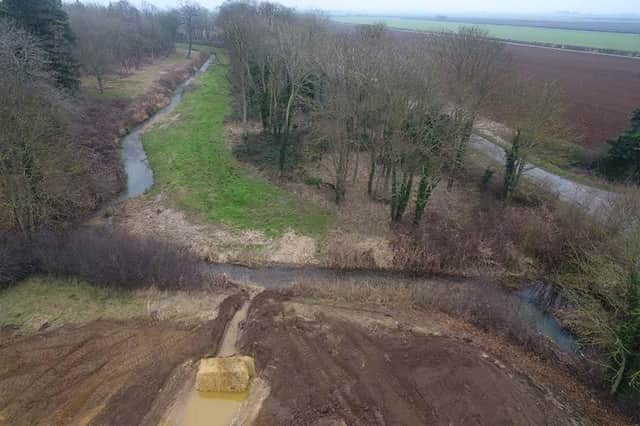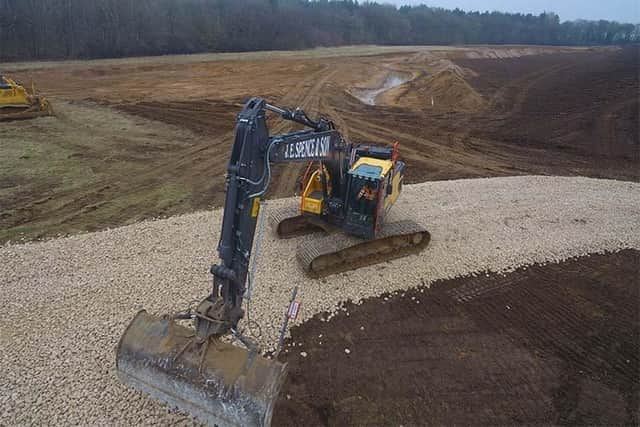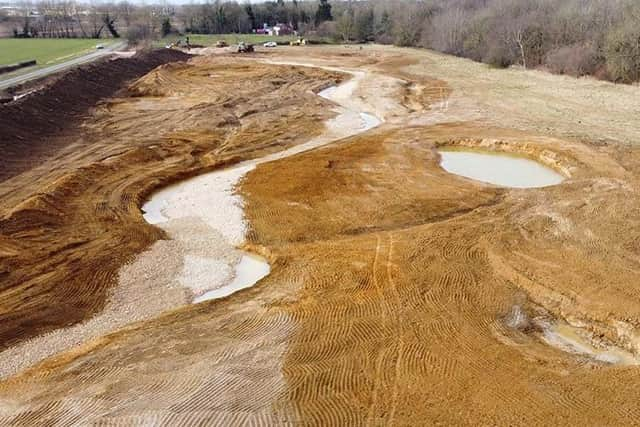Second phase to restore river gets underway


Dyson Farming is pressing ahead with the multi-agency scheme to restore natural elements to the formerly straightened Dunston Beck.
In February 2021, Dyson Farming collaborated with the Environment Agency and Wild Trout Trust to deliver phase one - to restore the natural function on a stretch of the beck downstream from the village of Dunston, whilst increasing pool areas and oxygenating riffles (areas of shallow, free-flowing water created by coarse sediment) to improve aquatic life in the beck.
Advertisement
Hide AdAdvertisement
Hide AdA year on and works to extend the scheme are in progress further downstream. This will see the river length increasing from 350m to 420m by allowing the beck to have a natural weaving path through the landscape, returning to its original features and providing some flood relief.


At the start of the project, Dyson Farming conducted ecological surveys. The project will continue to monitor wildlife and the water in and around the beck. The reduction in turbulence means there will be less sediment held within the water body, reducing the phosphorus load and resulting in a cleaner watercourse.
The two phases will more than treble the water habitat area within the three hectare section of waterway. At times, 1.9 hectares will become high quality wetland habitat. The total amount of river habitat consisting of riffles and pools will have increased from just one per cent to 11 per cent riffle and 21 per cent pool habitat for aquatic invertebrates and fish (particularly trout), which spawn on gravel riffles and shelter in deeper pools.
The ponds, scrapes and secondary channels in the floodplain provide even more habitat diversity which will benefit a wide range of plants and animals, including mammals, amphibians, reptiles and many bird species. The excavated land has been established with grass and native plants and sheep grazing has been introduced, benefitting insects and other invertebrates that pollinate wildflowers and nearby crops.
Advertisement
Hide AdAdvertisement
Hide AdWhilst still in its infancy, the Dunston Beck project has proved hugely successful, and Dyson Farming will continue to monitor the progress of this site as the area develops.


Ian Willoughby, environmental coordinator at Dyson Farming, said: “Not only does this restorative work enhance important niche habitats such as the aquatic life within the beck but at a land parcel level the floristic sward, grazed with sheep increases the number of insects that has wider benefits at a landscape level with species such as bats that have maternal roosts in the adjacent landscape features of Nocton Wood.”
They have also been advised by Lincolnshire Rivers Trust and the University of Lincoln throughout.